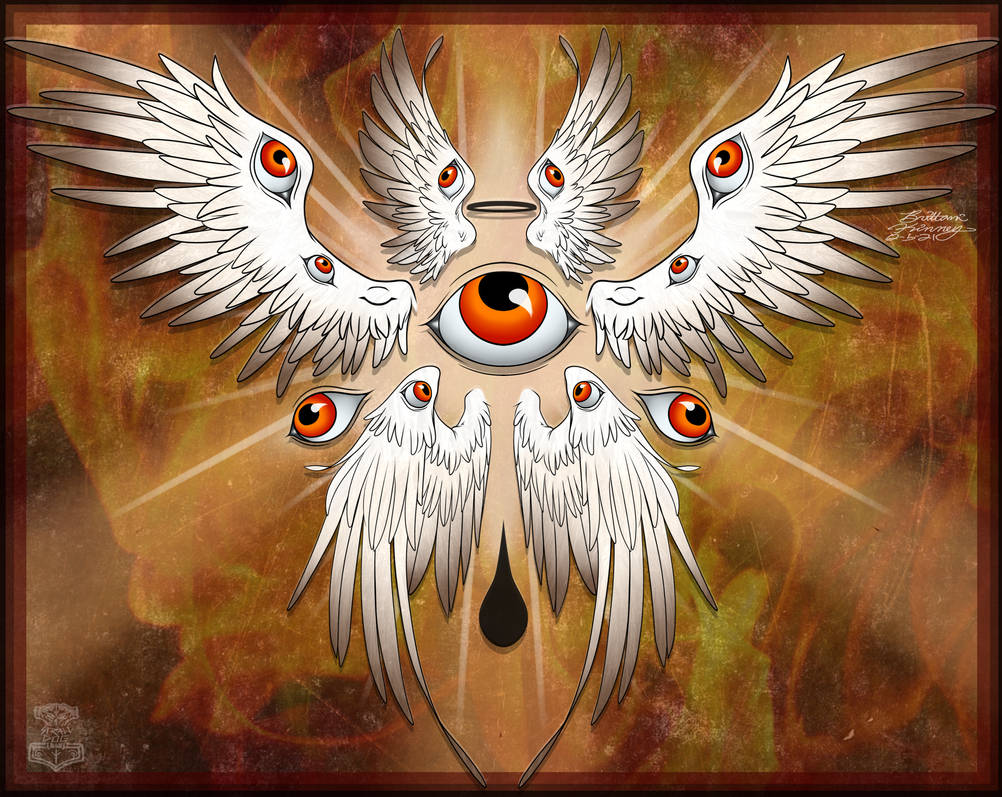Makes sense to teach the basics of most popular religions and those locally/culturally relevant. It’s just useful information. Helps in understanding other people.
Here’s how it goes down:
Do you want to teach various creation myths and explanatory myths? That stuff goes into cultural anthropology, or if there’s enough of it, such as Hellenic mythology, then a literature class, but then it’s cross referenced with the values of the age. No-one wants their modern religion taught as mythology right next to others that are regarded as ancient superstition.
Do you want to teach existential questions and morality? Awesome! We have entire school departments dedicated to philosophy. Typically 101 is an intro to existentialism and 102 is an intro into morality. And both of them move beyond religion in the very first chapter. The thing is, religions assert their positions on why are we here? and are property rights evil by mere assertion. Ministries say we have the authority, and you obey. and might even back their position up by scripture. But none of this really answers either why or how we know and even Descartes (a devout follower of the Church) couldn’t find a sufficient answer to his own evil demon except to assume by God is good by default (rather than God being a construct by which a corrupt Church might manipulate their flock). Religion turns out to be a starting point for our purpose, the point of everything and right and wrong, but where we end up after the enlightenment is far beyond the apologists.
Just teach the basics about major world religions
I don’t even know what the basics of christianity are anymore. Do you teach it is a monotheistic religion or a polytheistic religion that changed its mind. Do you teach it as them believing humanity stemmed from adam and eve, or adam and eve were the first christians and their 3 sons were to spread the beliefs but acknowledge that humans already existed on earth created by other gods/means. You break bread and it is literally the body of a man, or figuratively. 40,000 versions of christianity that found reasons to not be the same sects. So I suppose you teach a historical touching of how it has changed but by no means could you teach the concepts of Jesus before highschool without upsetting parents these days, even then. Imagine the response to forgiving all drug users, imprisonment being wrong, not having any spending money, etc. Angry parents pissed off claiming schools are teaching Jesus was “some sort of communist.” Was banking not against christian law as well, as you could not ask for interest and such as a true christian would have given it to you without expectation?
Usually there’s some watered down descriptions about different denominations you could teach. No need to get into the nitty gritty of them all, just the very basics and some stuff that makes them different.
That’s how they did it at my college in the Netherlands, which has ‘Christian’ in the name but really isn’t religious at all.
You basically got a primer on the big religions as well as some of the fringes. This was part of my journalism degree. I am fully atheist but honestly didn’t mind since it was just factual information.
They also encouraged us to at least once visit a church, synagogue, mosque, etc. The ONLY one they didn’t want us touching was Scientology after they had some negative experiences in prior years.
okay but the problem with teaching pretty much anything in schools is that the kids don’t care, they don’t want to be there, they don’t care about the subject matter, and how are you going to fit all of the world’s religions into an elementary school class? And expect the kids to care or comprehend it?
I vaguely remember the Mormons briefly being mentioned in a history textbook in high school. maybe one paragraph in the whole textbook. It barely scratched the surface and I would not have remembered it at all if the Mormons hadn’t sucked me in & warped my brain for a decade in my 20s.
Kids don’t want to be there or learn most of the stuff being taught. Somehow we manage
In Quebec we have a course like that in grade 4 of high school (~15 years old). I certaintly didn’t care, hated everything religious back then. But now if you ask me what the Torah is, somehow I remember it’s the Jewish bible.
It wasn’t about “all the world’s religions” really, but only the big 5, which we’d spend a fifth of the school year on each. I’d say that’s acceptable and despite being an atheist, I’m still glad I got that course. Now if we could have had an economy course instead of poetry…
My issue with this, is, how do you teach non-religion?
How do you approach telling the majority that their faith is just as valid as another- incliding the lack of it?
It’s better to just not even try, especially in this environment.
Comparative Religion has been an academic subject for centuries as has Religious History. It’s not hard.
Alright. Go show me how not hard it is. Teach these kids.
It’s not difficult when the kids are respectful and the parents aren’t running for the torches and pitchforks.
When the parents are actively trying to get you fired for so much as mentioning something other than their hyper-specific brand of whatever, it becomes dramatically less “not hard”.
The simple solution is to remove it all. Particularly because it’s extremely unlikely that the poorly represented faiths and religions are going to be accurately taught or understood by an elementary school teacher who may not even be able to read or write
I have. I spent two years teaching history to freshman in high school and collectively months of my lesson plan were about the historical development and path of polytheistic traditions into the early Catholic Church, the birth and spread of Islam, the reformation, the development and spread of Buddhism, and the rise of Protestant factionalism in the 19th century (it’s an American school, so that one is important). It was absolutely not hard. I didn’t experience any fallout, pushback, or controversy.
Also, your assessment of the landscape of the educational system in the US is driven by sensationalist headlines and hot takes, not a strong point of view. Hell, even the article you linked doesn’t demonstrate the point you linked it with the hopes of supporting.
I have. I spent two years teaching history to freshman in high school and collectively months of my lesson plan were about the historical development and path of polytheistic traditions into the early Catholic Church, the birth and spread of Islam, the reformation, the development and spread of Buddhism, and the rise of Protestant factionalism in the 19th century (it’s an American school, so that one is important). It was absolutely not hard. I didn’t experience any fallout, pushback, or controversy.
So, first things first. There’s actually no such thing as any single ‘American educational system’. Lets be perfectly clear on that point. The control exerted by the federal government is proportionate to the amount of funding it provides- which in most states is less than ten percent of the total educational funding. Most of which comes from the states they reside in (which also exerts the most control on educational standards.) and the specific local communities (which exerts the only direct control- through the use of local school boards as oversight.)
Also, your assessment of the landscape of the educational system in the US is driven by sensationalist headlines and hot takes, not a strong point of view. Hell, even the article you linked doesn’t demonstrate the point you linked it with the hopes of supporting.
bull. fucking. shit. It’s not ‘sensationalist headlines’ driving the flurry of laws signed by DeSantis in Florida; many of which are predicated on protecting the feelings of mostly-white, mostly-christian ass fucks… who apparently think slavery was beneficial to slaves and really don’t like being called on their bullshit. Or who think the LGBTQ+ people don’t deserve the same respect everyone else has, or banning books talking about the holocaust.
It is not a “hot take” to recognize that there are places where school boards are now a battle ground of culture-war issues, that are mostly white, mostly christian assholes trying to force their beliefs on the rest of us. this shows itself up in the trans-gender bathroom debate, in the debates about racism and African-American studies, or racism and Native American history. or in STEM with the rampant bullshittery going on.
just as I don’t know you… you don’t know me. My views come from sitting at school board meetings listening to the debates happening- and I’m not even in a particularly contentious area. Yet in the last year, the number of numskulls asking to ban books because of what effectively comes down to it offending their beliefs across a broad spectrum of issues is up. I’ve spent the last few years watching (and speaking my mind,) at these events.
hell, earlier this year, one of the issues brought to my local school board was that a teacher had told a Mormon kid that Native Americans weren’t actually Lamanites. a belief that (I’m pretty sure,) most Mormons don’t actually hold anymore. To my understanding of that issue, all the teacher was actually saying was that genetic and archeological evidence did not support that belief. which is a fairly bland and reasonable statement to make.
which brings me back to the point at hand: in the current political atmosphere, it is extremely difficult to balance the presentation of modern religious world views in a manner which is not going to offend somebody. After all, an evangelical christian is very unlikely to be happy if their creation myth were treated with the same derision they treat the Hellenistic creation myths or the Buddhist’s nominally lack-of-creation in their beliefs; and the fight over Intelligent Design in biology class is a decades-old battle that is, was and remains at issue.
As for directly addressing the faiths of everyone in the school system, broadly speaking, the demographics of my particular school district includes… Christians (the majority here, by percentage- mainline protestant, evangelical protestant and catholic), atheists (and all the other ‘religious nones’… lumped in with agnostics and people who ‘don’t know’), Muslim, Jewish, Hindu and Buddhist; along with about half a dozen or so ‘other faiths’ that are basically everything left over. (Humanism, deists, Unitarians, eclectics, etc.)
remember, if you accommodate one, you have to accommodate all. or you run the risk of spawning a shitload of lawsuits. lawsuits that have to be defended, and payments that take money away from already cash-strapped schools. It’s simply not worth it.
I went to a Protestant school in Northern Ireland. Learning the differences between Catholic and protestant churches did more than if neither was taught.
Ironically I would support religious studies in schools. BUT…
Only if they teach ALL of them. And I mean all. Like ancient Greek, Roman, Indigenous, Pagan, Hindu…
I mean let’s teach kids how long this bullshit has been going on for, how many different ideas there are and how the only positive thread amongst them is the idea that we are all one.
Here in Sweden I had a mandatory religious class. They teaced about Hindu, Buddhism, Christianity and so on. We pretty much learned of all the “major” religions and i would say it was pretty beneficial to us all. Did it have shortcomings? Yes, but it was better to get a broad perspective on things instead of just one thing to be teached as “true”. We also had history parallel with religion which tied them both together pretty nicely.
Without taking too much liberty, can make an assumption? Sweden has a high level of secularism because of this eclectic education when it comes to religious teaching.
Would that be your assessment?
I would say that it is probably one of the reasons. Another is that you are just not thaught about religion as a way of living and more just like any other subject like physics or history. It’s more of a objective look at it and what makes up that religion. Like, Hinduism believes a and therefore does b while Christianity believes c and therefore does d and so on.
It also helps not being raised by religious people of course.
I thought It might be. I think it would be good if the US adopts this approach.
Just out of curiosity, did they mention The Baha’is?
Nope, never heard of them. Like I said, it had its problems but I guess you can’t cover everything.
I’m unsurprised. They are very small. Just curious
That’s what we did at my Highschool. Our prof taught us about various religion, including Lavey’s Satanism.
I’m from the Midwest and I took AP World History which included learning about: Hinduism, Zoroastrianism, Judaism, Christianity (origins, Catholicism and the Reformation), Islam, Buddhism (& Zen Buddhism), and Taoism. Non-AP world history students would’ve also covered some of those too. And this was a public high school.
Grew up in the UU (Unitarian Universalist) Church and I’m eternally grateful that this was the religious education they offered.
So this is a spiritual belief with humanitarian ideals mixed with Judaism/Christian idolgy?
It originated from Judeo-Christian ideology (Unitarian as in rejection of the Trinity and Universalist as in everybody is saved), but it encompasses all (benevolent) forms of belief and non-belief now. Super religious or atheist, as long as you practice not being an asshole to the best of your ability, you’re welcome.
That’s an interesting group of tenets. Thanks for sharing.
I agree. Also if someone wants to be religious, they should know about all the options out there and decide what fits their views best instead of being railroaded into the religion of their family.
It’s like being born into a Republican family and never being exposed to the views of democrats, you just always vote Republican because it’s what your family has told you is the way to do it.
Honestly I’ve been ok with religions so long as the people who believe don’t equate religious =good. Being moral should always be more than just believing someone will punish you for being bad. the reason religions have hells is to motivate people to be good people. Not to be the definition of morality. And sadly a lot of religious people forget that. What you pray to should effectively just be your culture. Like your choice of clothes or the songs you listen to. Zealoty is the only reason I’m not religious myself.
Imparting a morality is not the same as belief.
Most religious people don’t have a view, they have a belief.
Belief is okay, but imposing morality is fucked.
I demand all school children submit to Zeus.
How dare you?! It’s Jupiter or nothing!
Spoiler, they’re the same God. Kinda mirrors the trio of current religions we got going…
As a reformed 2nd caucus of 1297 latter day zeusian, how dare you lump me in with them.
Wait a, reformed 2nd caucus of 1297 latter day zeusian great lakes region? Or reformed 2nd caucus of 1297 latter day zeusian eastern region?
Eastern, of course.
Die Heretic!
But unlike Yahweh and Allah, Zeus and Jupiter were originally similar but separate deities before the Romans identified their gods with the ancient Greek ones.
Oh yeah for sure, that was a classic Roman move!
To their credit, the “Greek myths” we learn today are usually the Roman versions. Guess they were just better at making the stories interesting!
Blasphemy! Kill the heretic so they are sent to Helheim
By Odins beard!
Zeus and Hades were added in the late classical age. Poseidon is the true all-father and Dread Persephone rules the underworld.
deleted by creator
Checkmate, Atheists
Where I live you can choose between a mainsteam religion or ethics class.
Since my parents didn’t have to decide it I always choosed ethics, in order to don’t have to deal with hyper religios teachers, who only belive in “the one true religion”, in the end I had to deal with them anyway
Same here, but my parents chose that I go to Religion class until they had no say in that anymore (age of 14 where I live). Then I opted for ethics.
I think a course covering religion should be taught in schools. Roughly the way I would structure it is 2x a week for 12 weeks. 10 weeks on the 10 biggest religions of the world, 1 week on a religion that is not in the top ten globally but it locally important or historically important to the area, and 1 week teacher’s choice.
Sounds like you want religious studies and not theology. It is taught many places but usually first appears in high school or you can get degrees in college. I can’t speak for how they break down their study guide, I’m sure they all vary a bit.
would be good for cultural awareness if nothing else. You could mix and match the concepts you like from each religion so you take something away from it.
Basically UU except you don’t have to listen to music from the 1960s.
I wonder what the reaction would be if the teacher chose tst as thier pick.
10 weeks on the 10 biggest religions of the world, 1 week on a religion that is not in the top ten globally but it locally important or historically important to the area
I’d say it should be the opposite - learning about the culture around you is more meaningful to learn about your own roots (even if you don’t believe it it, knowledge is useful).
I remember needing to learn about different mythologies of different cultures in English classes throughout my time as a student, sounds like a more structured, modern version of that.
Now that I’m thinking back, I do remember one American teacher I had (this was not in America) who taught us “The Bible as Literature” back in middle school and am only now realizing she was probably trying to convert us.
Those who want religious dogma taught as truth want their own doctrine taught. And just as they’ll crab about Zarathustra, they’ll complain about unitarianism. They’ll proclaim univocality and literalism when scripture has neither of these properties according to the academic consensus.
Teaching religion as established truth is indoctrination, and religious ministries commonly have no qualms about it, admitting their own access to truth is only by assertion and fiat, and through no other authority than force.
Of course all religions. And they should also point out the ways people abused then as well as how the ideas may have been misinterpreted.
Also how they just copied from previews Myths.
Also that. You know what? Why not also the shit people made up, like Dantes inferno making hell look like a realm of pure fire and lava.
This is what happens in the UK. We have religious studies in high school, and all the main ones across the world religious are taught.
I really enjoyed RS GCSE. It was the thing that best equipped me to interact with the many, many other cultures I’ve encountered in the real world and in my industry.
I have almost nothing else nice to say about the British education system but they definitely got this right.
Religious Studies is freaking dope. Hold a Masters in it because I find it fascinating.
Only the mock ones.
So all of them?
If only.
Only the one true religion!!! ( Their’s)
I think exceptions should be made for private schools. If you want to send your kid to a school that teaches your particular brand, go ahead. Publicly funded schools should be bound by the 1st amendment though.
The school still has to satisfy the standards of the state it is in. No “intelligent design” in biology class, for example. It can have additional classes though.
Also, no public money, like vouchers, should be accepted in such schools.
The problem is when private schools get government funding, say through subsidies or voucher systems.
The existence of private schools incentivizes religious government officials to defund public schools.
If public schools aren’t going to teach what they want, they’ll remove funding from them.
The education system is a system of the state and the state should be athiest to allay the fears of all incompetent morons who believe in imaginary friends.
All religions spend billions a year to make and maintain their own places of business (church/mosque/synagogue/etc), if they want to continue lying and manipulating their children they can do so on their own dime.
Everyone pays for the education system and the education system needs to remain objective and teach empirically researched FACTS.
If people want their religious texts read in school it can be done in a philosophy or fictional literature course.
The only true God is Cloister the Stupid, who will lead us to Fushal, the Promised Land!
Just the correct one obviously!















